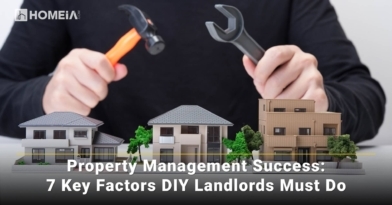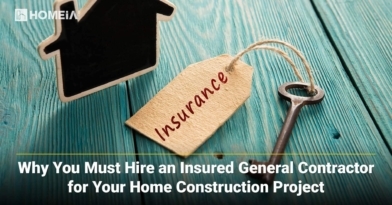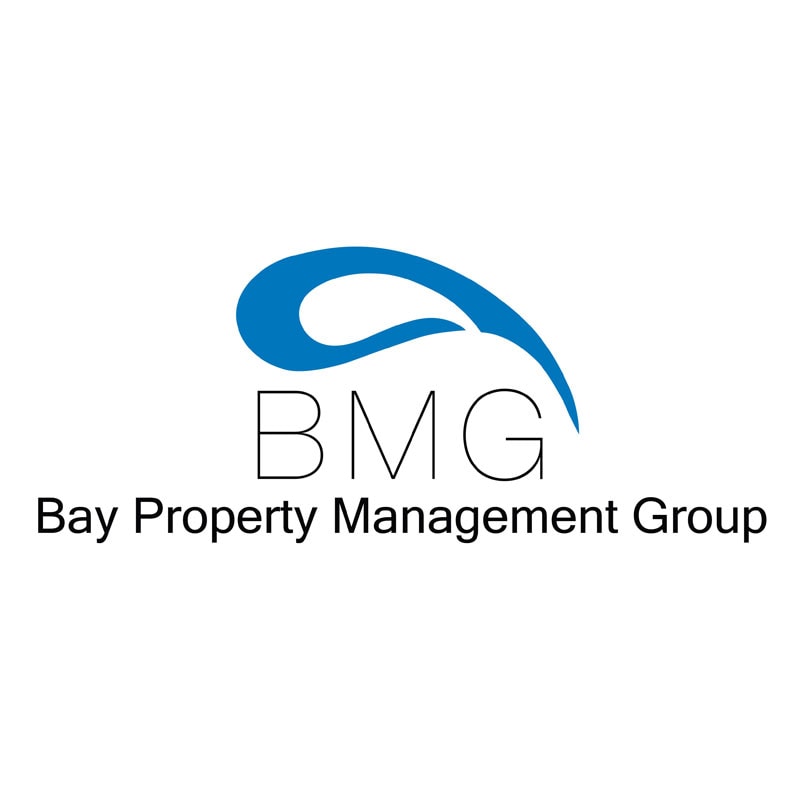10 Reasons Your Tenants Can Sue You
- Author:by Nichole Shahverdi
- Category: Real Estate Investing

Most landlords and tenants are looking for a mutually beneficial arrangement that makes everyone happy. But occasionally, conflict ensues. Rental disagreements can be a burden on both parties, and tenants sometimes take drastic measures. As a property owner, you could be the target of a lawsuit.
The best way to avoid this situation is to be aware of your tenants’ rights so you can avoid violating them.
If you’d like to know which situations could lead to a court notice — so you can work to avoid tenant lawsuits altogether — keep reading.
Table of Contents:
- 1. Filing a wrongful eviction
- 2. Failing to provide habitable living quarters
- 3. Failing to repay repair costs
- 4. Illegally withholding the security deposit
- 5. Deviating from the state’s security deposit laws
- 6. Adding illegal clauses to the lease agreement
- 7. Failing to prevent injury on the rental property
- 8. Illegally entering a tenant’s property
- 9. Failing to disclose hazards
- 10. Violating the Fair Credit Reporting Act
- Conclusion
1. Filing a wrongful eviction
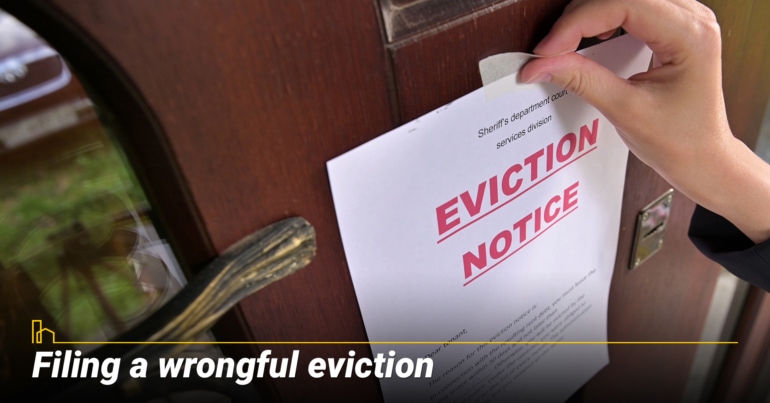
Landlords are frequently successful at winning eviction cases. However, you still need to follow a legal eviction process.
Removing tenants yourself might seem like the most straightforward solution when they haven’t paid rent or have broken their lease agreement, but you could get in trouble without the proper paperwork. It’s illegal to kick your tenants out on the streets, even when you have a valid reason.
So, although it can be tedious, follow the correct procedure and get a court order before removing tenants’ property from the premises, changing the locks or cutting off utilities.
9 Important Rules to Be a Successful Landlord
Deciding to own and manage rental properties is not something to take lightly. Once you’ve taken a serious look at the reality of rental ownership, you might be excited to get started or decide to take another path. If you’re still thinking that it’s a workable plan, here’re 9 rules to live by…
2. Failing to provide habitable living quarters

Tenants have the right to live in a safe and healthy environment, and as a landlord, you have your part to play in fulfilling that obligation.
That means everything you are legally required to provide must be in working condition, such as anything related to electricity, plumbing or eradicating pests. Any defect on your end that compromises the habitability of your rental unit leaves you open to a lawsuit.
3. Failing to repay repair costs
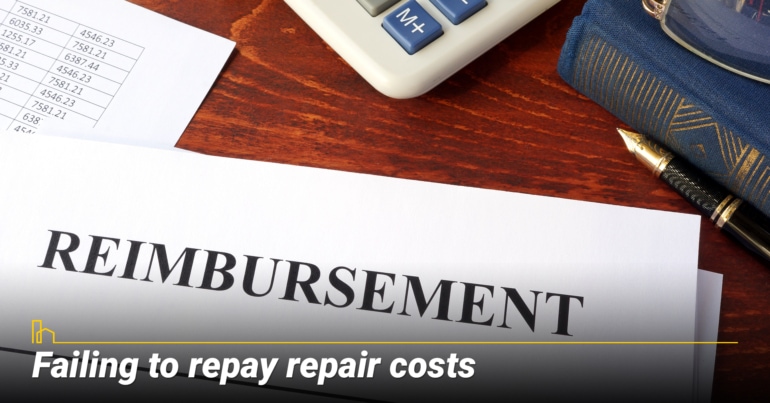
It’s not uncommon for tenants to get around to making repairs before their landlords can get to it. Typically, in those scenarios, the tenants expect full reimbursement for the money they’ve spent.
When landlords try to get out of paying, tenants can take them to court and force them to pay what they owe — and perhaps even more, if the judge deems fit.
10 Smart Ways to Make and Save Money with Your Rental Property
Some landlords find that after all the expenses, their income isn’t enough to generate a positive cash flow. Instead of a goose that lays golden eggs, they end up with an ordinary, squawking bird whose feed costs more per month than a daily omelet. Don’t let that happen to you…
4. Illegally withholding the security deposit

It’s typical for tenants to pay a security deposit when they first move into a new rental. That fee is meant to cover damages that occur on the property while the tenant resides there, or to cover unpaid rent.
However, landlords aren’t allowed to spend that security deposit on anything they deem fit. Each state determines which expenses can come out of the security deposit. Taking money out for reasons that don’t count, or illegally withholding the security deposit, could land you in a lawsuit.
Recommended for you
5. Deviating from the state’s security deposit laws
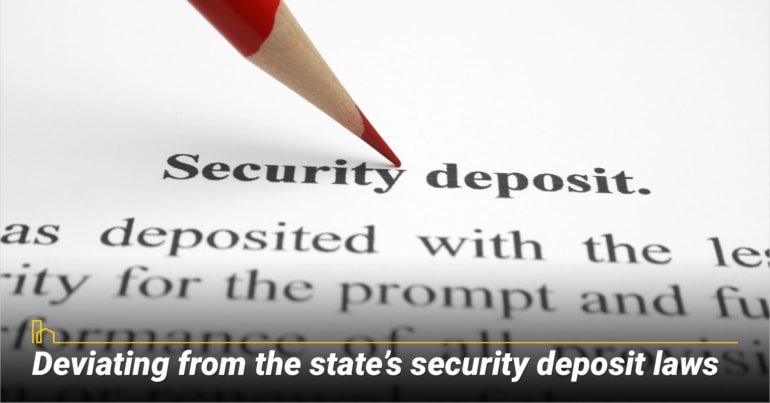
Even when you’re forthcoming with the security deposit, a tenant could still sue you for not following the proper rules. This could be in the form of charging over the state-allowed maximum, or failing to disclose the list of deductions you’ve made. Trouble often happens when a property owner isn’t transparent.
6. Adding illegal clauses to the lease agreement

The rental agreement is a critical document that defines a landlord-tenant relationship, so it might be tempting to squeeze in a few clauses that restrict certain activities. You have to be careful, however, because if those clauses infringe on your tenants’ rights (as stipulated by state law or the Federal Fair Housing Act), you could be in trouble.
Property Management Success: 7 Key Factors DIY Landlords Must Do
I often get asked what the critical property management duties and responsibilities are as a DIY (Do-It-Yourself) landlord. And so, my view is that if you follow these steps, you’re setting yourself up for a much more comfortable and headache-free process…
7. Failing to prevent injury on the rental property
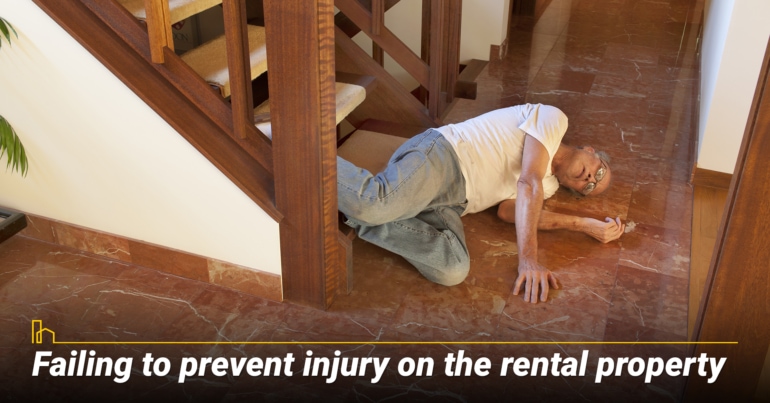
Home accidents are relatively common and are often due to clumsiness. But sometimes, accidents can happen when the landlord fails to install proper safety measures, or fails to repair certain things on the property.
Either way, if the reason a tenant sustains an injury that can be traced back to your actions or negligence as a landlord, then you could face a lawsuit. As the property owner, you’re liable for fixing broken steps and other structures that pose a risk to your residents’ safety.
Why You Must Hire an Insured General Contractor for Your Home Construction Project
If you decide to venture out on your own and have a custom built home with a custom home builder, do make sure you do your due diligence and find out as much as possible about your potential builder or in another word, your general contractor…
8. Illegally entering a tenant’s property
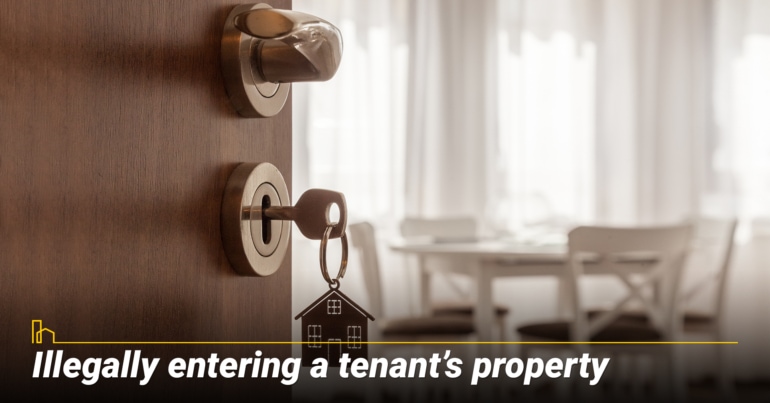
Despite having a spare key or access to your tenants’ homes, you’re not allowed to waltz right in whenever you deem fit.
Of course, sometimes it’s necessary for landlords to let themselves in, but state laws stipulate legal reasons to do so. Generally, these laws allow entry only for issues that are directly related to the property, such as maintenance, inspections, and, if necessary, a court order.
Entering your tenant’s residency for reasons not clearly outlined violates their privacy and could be grounds for a lawsuit.
9. Failing to disclose hazards
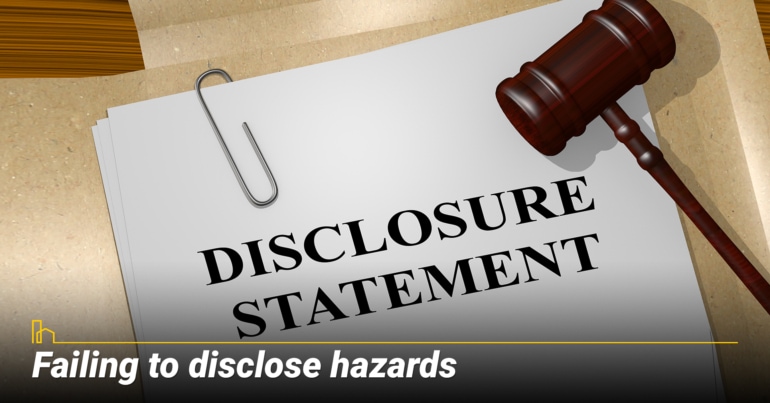
Sometimes, in their desire to make quick money, landlords are hesitant to provide potential tenants (or buyers) with the full details of a home. Such issues could include mold, lead-based paint or other defects in the unit.
Whatever the problem may be, it’s best to remain transparent about the true nature of your property. Otherwise, violating the disclosure policy could have you paying thousands of dollars in fines.
But you don’t have to lie or withhold information about your property to make a sale. There are legal ways to rent (or sell your house), even if you’re in a hurry, that won’t get you into any trouble.
What You Should Know When Consider Buying a Twin Home
While Twin home and Duplex are often used interchangeably, these two styles of housing are similar in many ways, there are some striking differences. We’ll briefly outline the differences and then discuss some advantages and possible disadvantages of owning a twin home…
10. Violating the Fair Credit Reporting Act
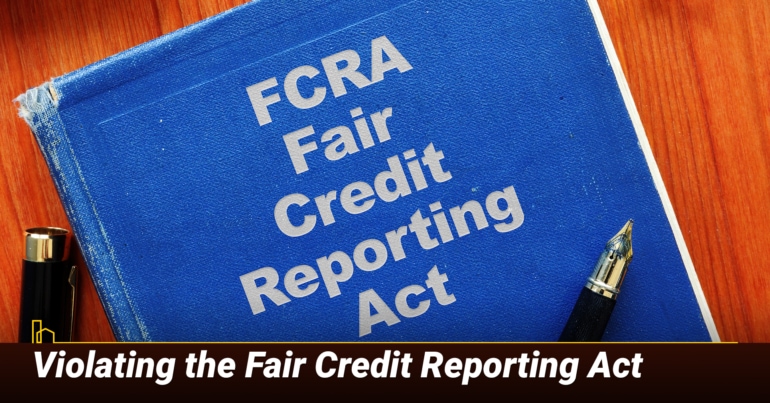
If your screening process includes obtaining consumer reports on your prospective tenants — such as credit reports or background checks — you need to take care to use the information legally.
There are regulations in the Fair Credit Reporting Act to protect the tenant. For example, if the information in the consumer report is used to deny an application, require a co-signer, or demand higher rent from a specific applicant, you must provide written notice to the applicant.
Conclusion
There are laws set up to protect both landlords and tenants. While you might not be able to control whether your tenants follow the rules, you can make sure that you do. It is best to keep up with the latest laws and policies protecting both parties.
Another option is to engage a rental property management service that offers much more experience with disputes. It’ll certainly give you more peace of mind and keep you out of unnecessary legal battles.
Recommended for you







